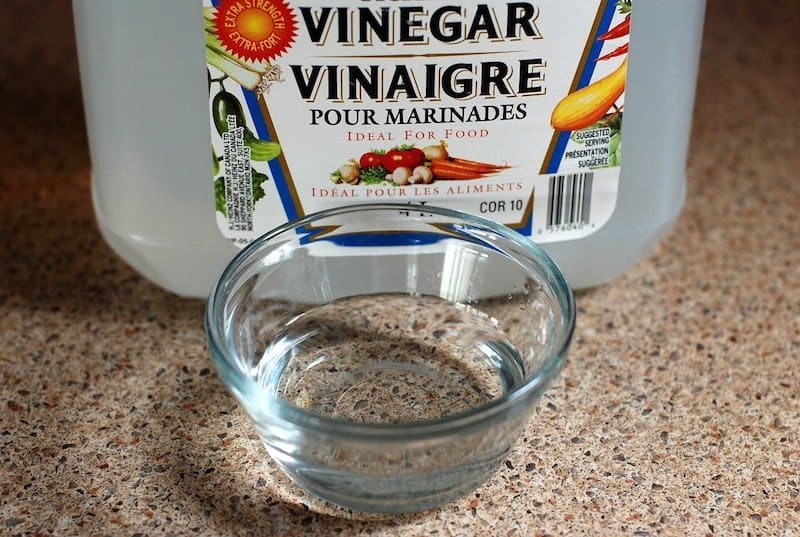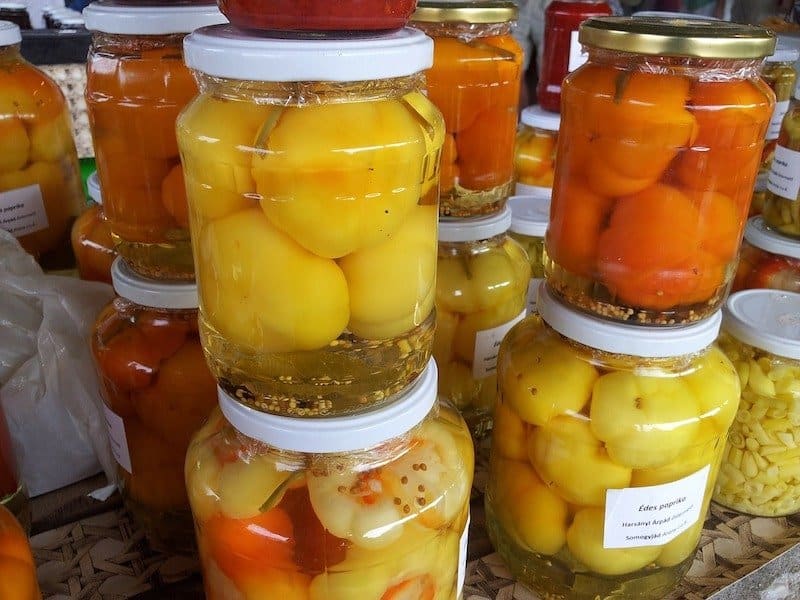Does Vinegar Stop Fermentation?
One of the biggest questions among fermenters is to add vinegar or not add vinegar?
Most fermenters know that vinegar is usually used for pickling, but can it be used for fermentation, too?
Adding a touch of vinegar to your fermented product is okay to do, as long as you’re adding the right amount at the right time. If not used in the correct way, the harsh acidity of vinegar can negatively affect the fermentation process. As many fermenters question, does vinegar stop fermentation all together?
Read on to learn more about the fascinating process of fermentation and vinegar’s effect on it all.
How the Food Fermentation Process Works
So, how exactly does fermentation occur? The process happens when microbes like yeast and bacteria in certain food and beverages convert carbohydrates into alcohols and acids via chemical reactions.
Many popular food products we enjoy today are products of fermentation, like beer, wine, kombucha, hot sauce, yogurt, and my personal favorite, kimchi.
Fermenting food and drink has many benefits, as it not only increases the level of flavor but also has immense preservation capabilities.
Another selling point? There are quite a few! Fermentation also provides many health benefits. Fermented products are rich in probiotics and healthy bacteria, which contribute to a healthy digestive system, gut flora, and enhance your immune system in the process.
Food and drink packed with a flavor punch that is good for your health too? If you haven’t jumped on the fermentation train yet, you’re missing out.
The Three Types of Fermentation
Not all fermentation is the same. In fact, there are three different types.
- Lactic acid: This particular fermentation type occurs when yeast and bacteria break down starches and sugars and converted them into lactic acids. Some examples of lactic acid fermentation are pickles, sauerkraut, and sourdough bread.
- Ethyl alcohol: This occurs when starch or sugar (usually from fruit) is broken down by yeasts and bacteria into alcohol and carbon dioxide. Some common examples are beer and wine.
- Acetic acid: This happens when starches or sugars from fruit or grains convert into sour kinds of vinegar and condiments. For example, apple cider vinegar.
Why Would You Add Vinegar to Fermented Foods?
There are several reasons why you might choose to add vinegar to your fermented foods. One being its preservation qualities. Adding vinegar to the mix promises you a longer and more stable shelf life for your fermented creation. Think about how long your favorite jar of pickles lasts in your fridge, for reference.
Another reason one might choose to add vinegar is simply the flavor. Adding some vinegar to your fermented products produces a tasty, sour tanginess in a short amount of time. It’s a little bit of a shortcut.
Lacto-fermentation can also achieve that very same sourness, but in a longer period of time. The natural bacteria present create lactic acid that is responsible for the irresistible sour flavor you have come to love from pickles and other pickled vegetables. It just takes a longer time to achieve the same level of sour with this process.
Does Adding Vinegar Stop Fermentation?
Sure, adding vinegar to fermented foods has some nice benefits. But one big thing many fermenters wonder is if the high acidity of vinegar slow or stops the fermentation process.
The answer, in short, is that vinegar doesn’t completely put a stop to fermentation. However, it does significantly slow the process.
If you introduce vinegar to your mixture at the beginning stages of the fermenting process, it can slow down the fermentation and really limit the growth of all of those good lactic acid bacteria that a good fermentation requires.
That being said, if you add in a small amount of vinegar later on in the fermentation process, the flavor and enzymes will have developed to a point where they can withstand the vinegar and survive. They’ll have had time to grow and multiply, and the addition of vinegar will no longer overpower all the good stuff.
The real key here is not overloading your ferment with vinegar in the initial stages and only doing so after, if you choose.
Vinegar Alternative/Solutions
Below are some vinegar alternatives that you can use to achieve tangy complex flavors without risking all the good bacteria in the process. These are all great options to use instead of vinegar, because they can add flavor and zip to your ferment without stopping the fermentation process.
- Celery juice: this is an excellent additive that’s low in salt and adds a complexity of flavor. Celery juice is jam-packed with natural sodium, which means you don’t need to add tons of salt to achieve fermentation and flavor.
- Leftover brine: this one’s for the sustainable folk. Add some tangy leftover brine from a previous batch of fermented vegetables to infuse your liquid with good cultures and bacteria. This will assist with the growth of more bacteria. It is a natural starter of sorts.
- Whey: a dairy culture that is rich with bacteria that’s beneficial to your general health and especially your intestinal health. It’s found in many fermentation recipes, and is also a great flavor agent! It’s another low salt option and is said to speed up the fermentation process. Whey is a viable option but also has a few downsides. It’s not ideal for those who are lactose intolerant, and it’s also said to change the end flavor of ferments.
- Salt: All it takes is salt and plenty and plenty of patience. Did you know that traditional dill pickles are made without vinegar? Pickles fermented in a brine of salt are similarly tangy and sour. Salt creates flavor through lacto-fermentation and produces a similar pickled taste. Say goodbye to starter cultures. Let the microbes take charge and trust the natural process of fermentation.
In Summary
Overall, vinegar has its place in the world of fermentation but should be used sparingly and later on in the fermentation process, when the bacteria has had time to grow.
If you use too much, you would be overriding the natural process of bacterial growth that this whole thing is all about.
Remember that while vinegar is a shortcut to a great result, it’s not essential to the process of fermentation. So, use it if you wish, or don’t. With or without it, you can create lovely ferments packed with flavor and nutrients galore.
Interested in learning more about other factors that stop the fermentation process? Click here for my article on how cooking or heating up food can affect fermentation.








